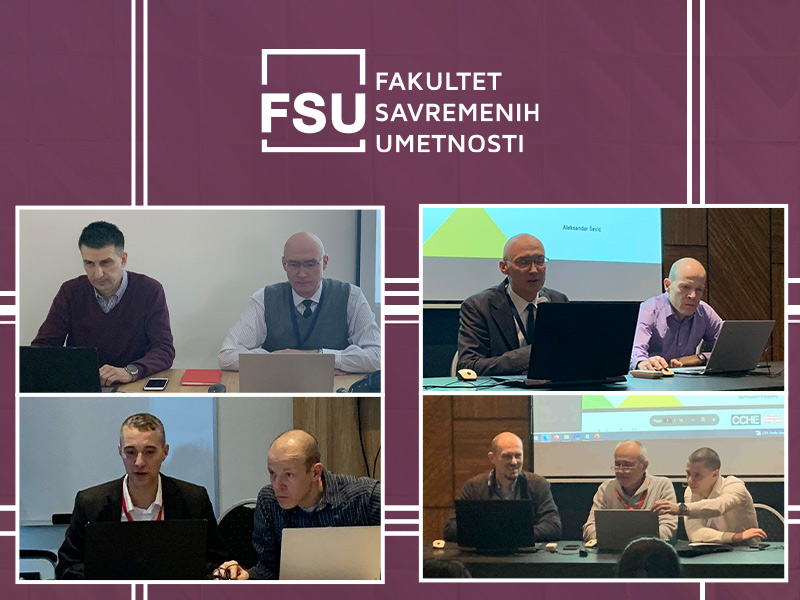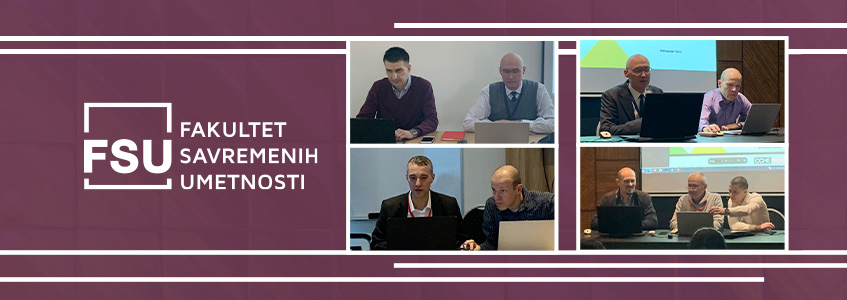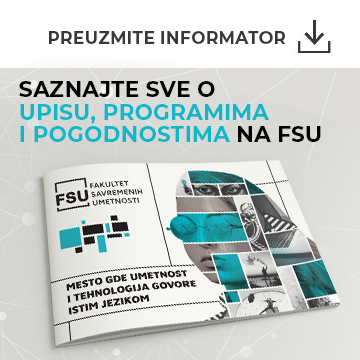
TEACHERS FROM ITS, ITHS, AND FCA SHINE AT THE CCHE CONFERENCE FOR THE YEAR 2024
Andjela Petrovic / / News / 8. 02. 2024.
At the recently held International Multidisciplinary Conference “Challenges of Contemporary Higher Education” (CCHE) for the year 2024, which brought together researchers, academics, and experts from various scientific fields and disciplines, teachers from ITS, ITHS, and FCA played a significant role. The conference took place at Kopaonik, in the hotel “Putnik”, lasting from January 29 to February 3, in a hybrid format, enabling the participation of researchers from all over the world. A total of 18 countries participated. The conference featured 405 papers in plenary and regular sessions, as well as 19 papers within the Student Symposium. ITS and FCA, along with other selected higher education and scientific institutions, were organizers of this international conference.

The presented works of teachers from ITS and FCA include:
- “Reliability and Maintenance of Artificial Intelligence” – Slavko Pokorni: The paper analyzes artificial intelligence systems and methods to ensure their reliability, as well as strategies for their efficient maintenance.
- “Challenges for Irish Universities: Common Concerns” – Aleksandar Šević: This paper discusses the specific challenges faced by Irish universities, focusing on common problems within the global context of higher education.
- “Impact of Electronic Journals on Libraries” – Milena P. Ilić, Valentin Kuleto: The paper explores how digitization and the transition to electronic journals affect the functions and role of academic libraries.
- “Navigation in the Digital Age: Electronic Journals and Their Impact on Academia” – Valentin Kuleto, Milena Ilić: The paper further explores the topic of electronic journals, analyzing their impact on the academic community and knowledge dissemination processes.
- “Shaping the Future: Intersection of AI and Quantum Computing and Its Impact on Society and Politics” – Valentin Kuleto, Branko Savić, Mladen Radaković, Milena Ilić: The paper presents research on how the integration of artificial intelligence and quantum computing can shape the future of social and political systems.
- “Advancement of Education: Impact and Challenges of Artificial Intelligence in Learning Environments” – Elena Gurgu, Valentin Kuleto, Branko Savić, Mladen Radaković, Marko Ranković: The paper addresses the potentials and challenges of implementing artificial intelligence for educational purposes.
- “Automation of Notification Processes in Educational Institutions Using IT Solutions” – Goran Radić, Nikola Dragović, Snežana Anetić, Marko Vulić, Ana Đokić: The paper explores how technology can improve and automate notification processes within educational institutions, enhancing communication and efficiency.
- “The Possibility of Applying Disruptive Design Methodology in Education Design” – Vanja Stanković, Jovan Ivković, Šemsudin Plojović: The paper analyzes how disruptive design can be applied in education to develop innovative learning approaches and teaching methods.
- “Empowering Innovations in Higher Education: Smart4Future Approach” – Valentin Kuleto, Nina Stojanović, Branko Savić, Larisa Mihoreanu, Nevenka Popović Šević, Milena Ilić, Lidija Miletić: The paper presents the “Smart4Future” concept as a strategy for empowering innovations and entrepreneurship through the integration of smart technologies in higher education.
- “Analysis of New Frameworks and Processes in Public Opinion, Connection with Diplomacy and Politics” – Mihailo Bukvić, Zoran Branković, Zorica Lola Jelić: The paper explores how changes in public opinion influence politics and diplomacy, especially in the context of new media frameworks.
- “Revolutionizing Higher Education: Smart4Future Strategy” – Valentin Kuleto, Branko Savić, Milena Ilić, Nina Stojanović, Šemsudin Plojović, Vladimir Puvača: The paper discusses how the “Smart4Future” strategy can transform higher education, focusing on innovation and entrepreneurial ecosystems.
- “Connecting Art, Entrepreneurship, and Innovation: Insights from the Creative Nexus Initiative” – Milena Ilić, Dragan Ćalović, Biljana Viduka, Vladana Radnović, Marko Pavlović: The paper examines how the “Creative Nexus” initiative can serve as a platform for connecting art, entrepreneurship, and innovation, promoting creative collaboration.
- “Application of Blockchain in Education” – Srđan Barzut, Dragana Sajfert, Milica Jevremović, Ana Bašić: The paper explores the potential application of blockchain technology in the education sector, with a focus on data integrity and verification of academic achievements.
- “Redefining the Vision of Artificial Intelligence: Energy Transition and Innovations” – Jovan Ivković, Jelena Lužija Ivković: The paper investigates how advances in artificial intelligence and quantum technology can influence energy transition and new forms of innovation.
- “Automation of Notification Processes in Educational Institutions Using IT Solutions” – Goran Radić, Nikola Dragović, Snežana Anetić, Marko Vulić, Ana Đokić: This paper focuses on improving communication processes within educational institutions through automation of notifications. The authors explore how IT solutions can effectively optimize and simplify the distribution of information among students, teaching staff, and administration. Technological tools and platforms that enable fast and accurate notification of lecture schedules, changes in the curriculum, organizational changes, and other important aspects are considered. The aim of the paper is to demonstrate how the implementation of modern technologies in the education system can contribute to more efficient time management, resource utilization, and improvement of the overall learning experience.
- “Exploring the Role of AR and VR in Shaping the Future” – Branko Savić, Mladen Radaković, Dragan Ćalović, Bucea-Manea-Tonis Radu, Milena Ilić: The paper studies how augmented and virtual reality technologies can transform professional, educational, and social landscapes within the metaverse.
- “Crowdfunding, Principles, and Methods” – Milan Vukasović: The paper analyzes crowdfunding as a method of financing projects in education, exploring its principles and methodologies.
- “Implementation of AI in Education: 3D Renders” – Jovana Tošić: The paper explores how artificial intelligence can be used in education, particularly in creating 3D renders of architectural projects.
- “Design Education for the New European Bauhaus Initiative” – Dragan Ćalović: The paper explores how design education can contribute to the goals of the “New European Bauhaus” initiative, emphasizing sustainability and aesthetics.
- “Media Influence: Navigating Public Perceptions and Globalization” – Mihailo Bukvić, Zoran Branković, Zorica Lola Jelić: The paper analyzes how the media shape public opinion and its reflection on global trends and perception.
- “Emergence of New Literary Genres and Teaching Literature” – Mladen Stanić: The paper explores how literature teaching adapts to the emergence of new genres and trends in literature.
- “The Influence of the Resava School on the Development of Serbian Script” – Ana Đurić: The paper examines the historical significance of the Resava School and its impact on the development of the Serbian language and script.
- “Optimizing Business Success through CRM” – Vladimir Matović, Vladana Radnović, Dušan Stojaković: The paper deals with customer relationship management (CRM) strategies and their impact on improving business performance.
Teachers from ITS, ITHS, and FCA significantly contributed to the CCHE conference for the year 2024 by presenting innovative research addressing current challenges in higher education. Their participation highlighted the importance of a multidisciplinary approach and collaboration within the academic community, providing valuable insights and paving the way for future research and development in various fields of science and arts.




